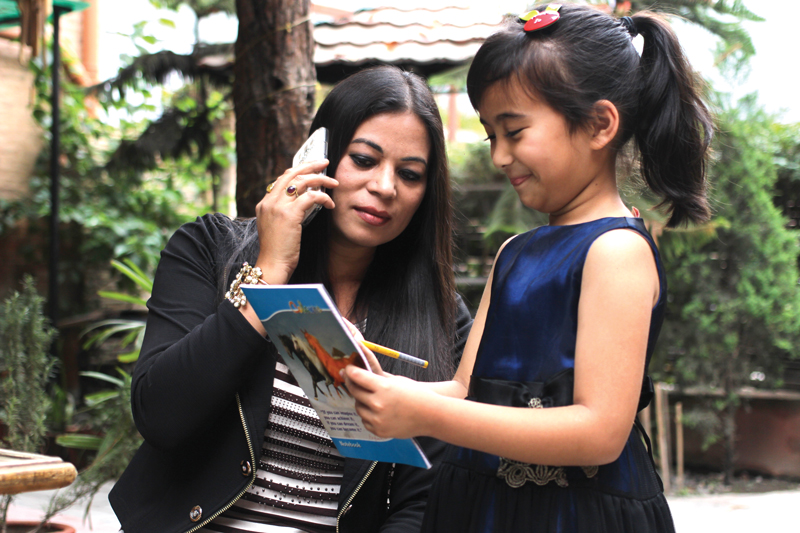Changing Role of Mothers
Marriage and motherhood continue to be a significant part of many women’s lives but present-day mothers are inconspicuously remaking their family roles without giving up their self-identities.

In the initial scenes from the movie Bad Moms, Mila Kunis is shown almost reaching the point of physical and mental breakdown when she has to take care of her young children, husband, a dog, her job and still find time to attend PTA meetings. Is this what is happening to many young urban mothers in Nepal?
Is the role of a mother changing in Nepal? Until about two decades ago the mother looked after her home, her children and other members of the family, in line with the popularly accepted understanding that she is the glue that holds a family together, and it is up to her to provide the loving care and support needed by her growing children. By and large her role was limited within the four walls of her home as a nurturer of the family.
She was expected to devote her whole life for the sake of her family. There is no doubt that the nurturing a mother provides is unparalleled and is vital part for her children’s care. But the skills required to become a good mother does not come naturally. It takes learning and practice to become a qualified mother. It is not an easy job because she must learn as she goes. It is helpful if she was raised in a caring home before marriage, in which case she can continue to pass on what she learnt. A good mother as per this expectation, is obligated to care for her family and put their interest before everything else. The ideal living environment that a mother can provide for her children is a warm caring home.
For the most of the 20th century and earlier the father worked outside the home for money and the mother worked at home. Mothers totally focused their full attention and energy on the family and home. Even educated mothers were expected to keep aside their profession aspirations.
But mothers are different these days. They have become more than only nurturers. Now they not only provide care and support to their children, but also provide income to sustain the family by working outside the home. Their workload has suddenly doubled at home and at work. This is a huge role for anybody to take on: “Do twice the work within the same original amount of time.” If she succeeds, she is accused of trying to “have it all” (sounds like a line from Adele’s hugely popular song “Rolling in Deep”). And if she fails in this role, she and everyone else in the family pay the price in the form of broken house, or other behavioral problems at home.
The roles of mothers have certainly changed, and there are many additional reasons for this change, and some of them are mentioned below.
• Mothers are more likely have gone to colleges and more likely to assert their independence. More mothers are working for money outside the home, and more fathers are choosing to assist in looking after the children. This phenomenon is more practiced in the West.
• Advancements in technologies have made housework less time-intensive.
• Mothers’ roles at home have become less specialized.
The response to these changes has not been entirely positive. Some social commentators fear that the family is failing. A closer examination reveals that it is not the family that is being threatened but the traditional ideas about how families should be organized. The change in the role of mothers is no doubt challenging the traditional practices but this change can bring a good outcome for the family and the mother herself as well. Handled well, families will continue to function, but women no longer participate in them in the same old ways. Instead of setting her up in a position where she will fail, the society, the legal system, and the work environment should instead change to accept and accommodate her new role. The stakes are just too high for her to fail, and the changes that have taken place cannot be rolled back.
In my opinion, the mother figure plays a vital role in a child’s life because she is perhaps the most important role model for the child. In addition, it is up to the mother to teach the child through love so that the child will grow up to become a caring well-rounded person, a positive contributor to the society where everyone -- including mothers -- can become the best they can become without leaving a trail of physical, emotional, and family breakdowns in its wake. I am sure Mila Kunis – who in her anxiety drives and hits her side mirror off, spills coffee all over her dress, and display, “I have-reached-the-end-of-my-ropes” -- would nod her head in agreement.
two decades ago the mother looked after her home, her children and other members of the family, in line with the popularly accepted understanding that she is the glue that holds a family together, and it is up to her to provide the loving care and support needed by her growing children.


